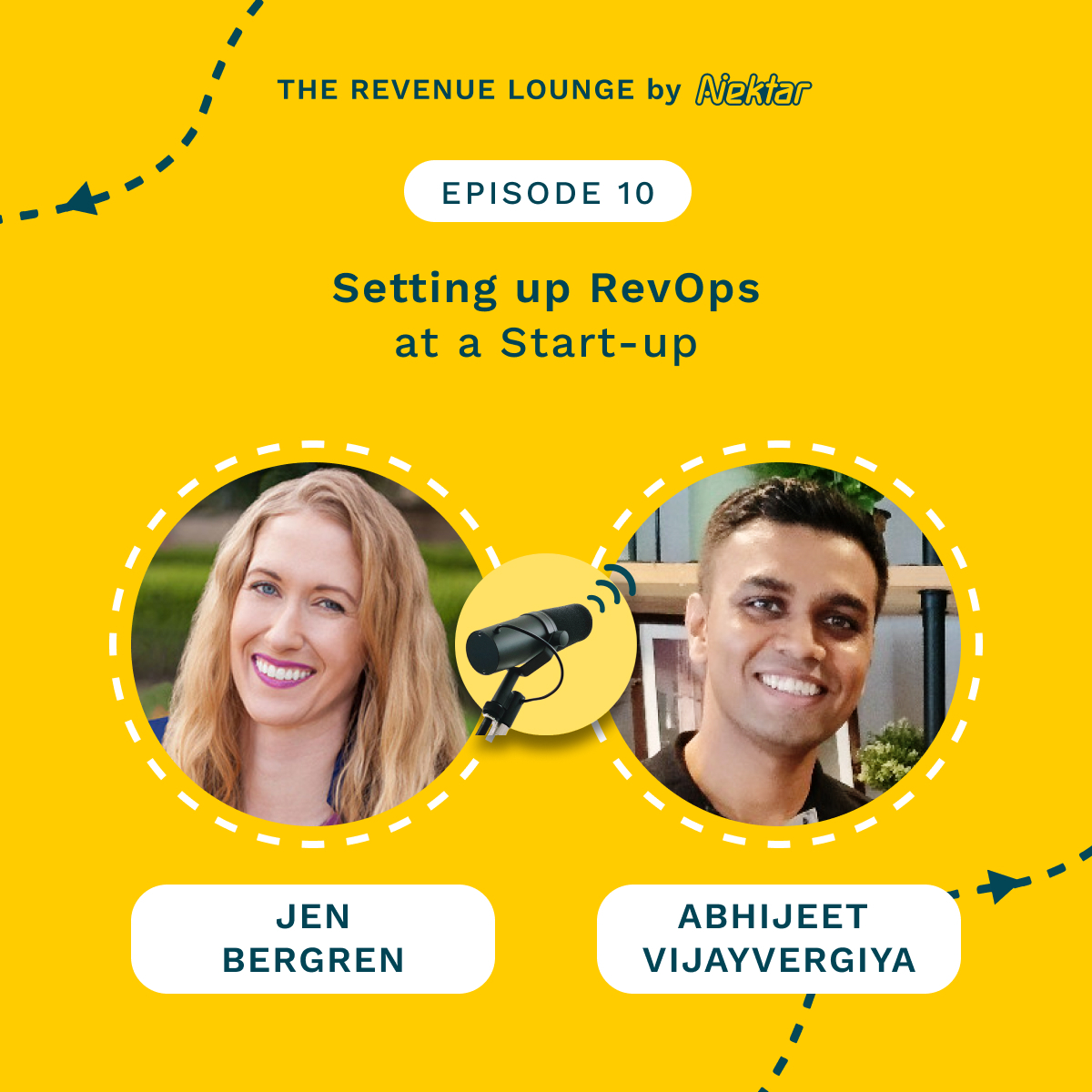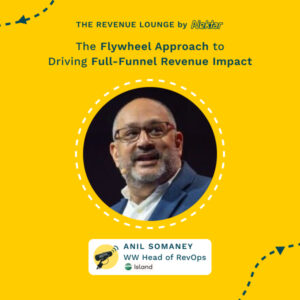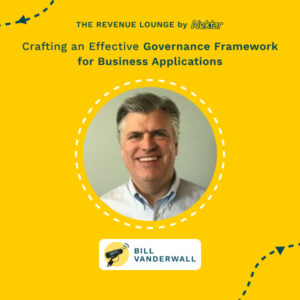Ep #3: Combating the Perils of Bad Data ft. Melissa McCready
April 19, 2023
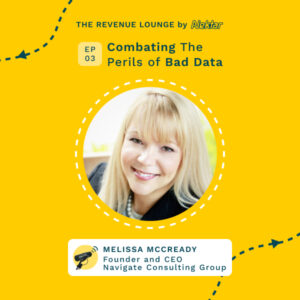
About
The Revenue Lounge
The podcast covers stories from leaders across RevOps, Sales, Customer Success, GTM, Data and Marketing about what drives these functions and what advice they would share with our listeners. With 3 seasons recorded, the podcast currently features 50+ enterprise leaders in the B2B SaaS domain. Tune in to hear from the best in the business
Welcome to Season 2 Episode 3 of The Revenue Lounge Podcast by Nektar.ai – A series of interviews with top Revenue Operations leaders on what drives the function and what keeps them going!
Episode Host – Abhijeet Vijayvergiya
https://www.linkedin.com/in/abhijeet-vijayvergiya-2571056/
Episode Guest – Melissa McCready
https://www.linkedin.com/in/melissamccreadylovesgrowthops/
Podcast Details:
Podcast page – https://bit.ly/3UznQ4U
Spotify – https://open.spotify.com/show/3DUOqnTpPOJ2xbyl7HdgN3
Google Podcasts – https://podcasts.google.com/u/0/search/the%20revenue%20lounge
Apple Podcasts – https://podcasts.apple.com/in/podcast/the-revenue-lounge/id1645044872
Episode Details:
Messy data in systems like CRM is a huge challenge for RevOps teams. Siloed, incomplete and inaccurate data prevents organizations from leveraging the full value of the tools in their tech stack, and ultimately leads to revenue leakage. Maintaining this data hygiene has emerged as one of the highest priority for RevOps leaders.
Let’s understand why clean data has emerged as a top RevOps trend, and what the new world of B2B demands from its data. And most importantly, how clean, accurate and complete data is the foundation to running a successful revenue operations function. And to answer our questions today is our guest Melissa McCready.
Melissa is the founder and CEO of Navigate Consulting Group. She has over 20+ years of experience and is a veteran in CRM, marketing automation and customer success.
Let’s hear it from Melissa!
Want to learn more about Nektar?
Talk to our team – https://bit.ly/3MishjZ
#revenueoperationsmetrics #baddata #datahygiene
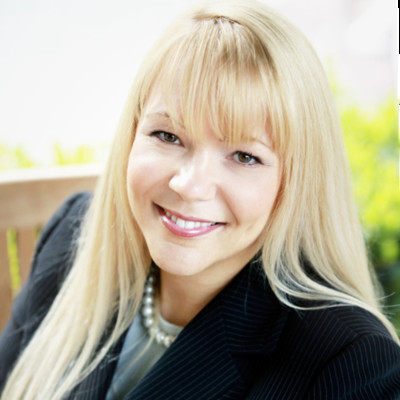
[00:00:00] Messy data in systems like CRM is a huge challenge for RevOps teams. Siloed, incomplete, and inaccurate data prevents organizations from leveraging the full value of tools in their tech stack and ultimately leads to revenue leakage. Let’s understand why clean data has emerged as a top RevOps trend and what the new world of B2B demands from this data.
[00:00:20] And most importantly, how clean, accurate, and complete data is the foundation to running a successful revenue operations. And to answer our questions today is our guest, Melissa McCready. Melissa is the founder and CEO of Gate Consulting Group. She has over 20 plus years of experience and is a veteran and CRM marketing, automation and customer success.
[00:00:40] She’s also been associated with the op stars they event, which we all love. Hi Melissa. Thank you so much for joining us today. It’s so nice to have you on the show.
Thank you so much for having me. Glad to be here and excited to get talking about data.
Exactly. I’m stoked for the conversation today. You and I have been talking about it on and off, and this is exciting.
[00:00:58] Very interested in knowing more about your perspectives today. So let’s start about your entrepreneurial journey first, entrepreneur yourself, and I believe very few people know this so we’ll, love for you to share that with all of our audience. Uh, what are you currently doing in your, in your present role?
[00:01:13] Yeah, so my journey hasn’t been traditional in the sense that, uh, 20 years in I’ve done more consulting than I have working at a company as a full-time employee, but it’s also given me a different lens with over 300 projects for companies ranging from like large enterprise companies like your Microsoft, Adobe Logitech, to superfast growing companies like Lacework, Glassdoor, silence, Blackberry.
[00:01:38] Currently consulting for these crafts growth companies on both rev ops and growth ops. And I’ll get into growth ops as we’re talking a little more. What I mean by that, from strategy to team building to process systems, data analytics, audits, roadmaps, and you can find me around communities such as like Peak and marketing ops.com, Pavilion, RevGenius, women in Rev, genius Women in Revenue.
[00:01:59] I’m also advising. Stack, Moxi and Sendoso. And there’s some new things that are coming up for me with other rev op leaders that I’ll be announcing in the very near future that I’m excited to share when it’s ready. So thank you again for having me. And yeah, my journey has not been like a lot of other people in here where I have gone company to company.
[00:02:18] It literally has been company to company on a much. More rapid level of getting people started, getting people into what they’re doing or coming in at a different growth stage and helping them scale again. Right? And then I may come back a couple years later and rescale them. So it’s definitely a different lens versus staying at one company and you know, being there are three, four, however many years.
[00:02:43] And really being in the depths of everything with people. And I’ve certainly done that, but that has not. The majority of what I’ve been doing. Yeah, I love that. It’s such a diverse background that we see here, so I love to hear your perspectives. And the best part is you have a unique take on Rev ops, and that’s what leads [00:03:00] me to the next question on how do you define Rev Ops?
[00:03:03] So revenue operations to me means customer facing, operational strategy, actions, and measurable results, but also align with the overall business objectives that will help a company drive. Their company growth as well as their partner, their employee growth, their customer growth, but customer is really at the forefront.
[00:03:26] And so you heard me just say the word growth ops option. I actually prefer to use that term more often than not because I see that revenue as a result of growth and the customer needs to come first in any business strategy. Yeah, I’m quite excited to double click on growth ops. Would you like to elaborate it for our audience?
[00:03:47] Everybody talks about rev ops and you have a very fresh perspective on growth ops, which seem to be like a bigger. What does growth ops mean? So as far as growth operations go, it’s the alignment of sales, marketing, [00:04:00] customer success and channel. And oh, by the way, all of the rest of the functions on the back end of the business, right?
[00:04:06] So your legal, your ap, your supply chain, it’s all of those things coordinating together. And so the reason that I think about growth ops more so is where we need to go is. We’re only talking about the front end of the business and we know that everything we do for customers involves product and supply chain.
[00:04:26] In some cases, if you’re b2c. So there’s a lot more to a business than just the customer facing to support the customer, to support the partners, to support the growth. So I really believe that growth operations is where we’re headed. I don’t think we’re there yet. I think we’re laying the foundation for that with.
[00:04:44] Yeah. Yeah, no, definitely. I think customer comes first, as you mentioned. And revenue is an outcome of growth, right? So growth ops seems to be much bigger vision for organizations to aim for. So let’s just go further into what, what the market is currently talking about Rev [00:05:00] ops. So what is your story there?
[00:05:02] How did you get into this business of Rev op? Just take us through that journey. Yeah. I think when you talk to most people in rev ops, they’ll tell you the same thing where it fell into our lap. It wasn’t intentional at this point. I think that’s gonna change with future generations. We’re trailblazing for them right now, but.
[00:05:20] I’ve been doing it longer than the moniker has been around, so there wasn’t a formal name when I started. It was kind of business operations. Sometimes it wasn’t even called operations. They were just like, you’re doing this, you know, it’s like you’re business development, but you’re doing all these operational things too.
[00:05:35] There wasn’t a career path for it, but I also had a lot of exposure to different functional areas earlier on in my career from legal. Bookkeeping to doing sales and marketing. I sat in as a interim director of customer success for Glue Mobile. I mean, who would’ve thought Glue Mobile, right? A gaming company.
[00:05:57] So having all those different experiences [00:06:00] and sitting in those different seats and getting that perspective of what it means to be in that role and how operations can help support it and really maximize it. I think that. Is my journey. My journey really is that having sat in different seats to experience it.
[00:06:18] And I think that is something that if someone’s getting into Rev op, that’s a really good idea to do is to ask for shadowing opportunities in different roles. And I know that the last company I was with full-time, we had incorporated that in and I had suggested that we do these kind of like let’s shadow each other for a day and what a difference it made of.
[00:06:40] Everybody start listening to each other. The change management got easier. But I think ultimately when it really started becoming rev ops, it was business systems. And it was like, where do you go? Are you in it? Are you in operations? Are you under sales or where you’re sitting? And I think that it’s something that has ended up on our doorsteps and we’re all trying to figure out, [00:07:00] okay, how do we create these paths for the future generations to be able to take this on as a career and continue to evolve?
[00:07:06] Rev. Yeah. Beautiful. No, it’s a very interesting journey that you’ve had there. So tell me about the challenges you have faced with respect to rev ops and running rev op as a function. Uh, and let’s focus more on the data specific challenges. Cause that’s, that seems to be like the number one pain point that we keep hearing.
[00:07:25] I mean, I’ve got like over 15 guests on the podcast so far, and out of data process systems and people, I think data becomes a number one pet peeve for everyone. I may have a little bit of a different answer watching some of the podcasts, but first of all, I think having controls on the data is really the biggest data challenge from knowing where the data originated to who can, who can modify it, what process drives the data collection, the data quality itself, and data governance.
[00:07:51] The core of data strategy starts with how it’s controlled to ensure that you get quality information and analysis. So I [00:08:00] think that that control piece is the biggest challenge because it depends on the environment, right? It depends on how things are structured, even from an organizational perspective from.
[00:08:13] How is it structured where sales is zoning Salesforce and customer success is owning Gainsight and marketing zoning. Marketo. HubSpot or that may be, and when they own that, what does that mean on those controls? When you have a system that is integrated with it, you know, there are very important. Control conversations that need to happen that tend to not as a part of just picking a technology process.
[00:08:40] So we picked something, cause we’ve used it before, but we really haven’t done the requirements of what we really need. And it doesn’t mean we’re not gonna end up in the same place. We just haven’t been. Very articulate with our business partners across, you know, the functional areas to be able to really get past those data controls [00:09:00] and move into, into more of this.
[00:09:02] I, it’s a unified view of the data, but it’s also a unified control view of the data and getting people on that mindset that, The more it’s controlled, the more quality that you can get out of it and the more the company is gonna benefit when you take that approach. Yeah. I love the fact, the way you describe it, unified controlled view of the data.
[00:09:22] I think it’s important everybody talks about a unified view, but I think unified controlled view is even more important cuz then it is more intentful, it’s more directional and there’s more value out of that particular data set. If, if it’s. Yeah. So what do you think is the cause of bad data aside some reasons for this bad data that creeps into our systems, like CRM people number one reason.
[00:09:47] Bad data goes in, it starts with decisions, right? And it starts with people making decisions about it. So it goes from people having access to important bad data. Maybe they’re missing processes in automation [00:10:00] to keep the data controlled, like a washing machine for zip codes or area codes or states, right?
[00:10:06] And now all of a sudden, all of that regional information or targeted personalization now has lost some of its. Right. We have systems integrations where data strategy was not prioritized correctly, so people were just like, we’ll clean the data after we do the migration. And you’re just going, oh boy, here we go again.
[00:10:24] And then people input incorrect, incorrect data, right? So automated data processes that are also not as accurate as they need to be from. Just an ex. A good example would be lead lifecycle, where a lead comes in now, it’s not getting routed correctly. Now, there’s no real way of capturing when a meeting was scheduled versus held, versus rescheduled, versus attribution on that data, and now you’re converting it and you’ve lost all those different pieces along that lifecycle, and now how are you gonna report it, right?
[00:10:55] And so attribution. Broken [00:11:00] your life cycle velocity and conversion rates are definitely impacted by that and probably not in the best way. So I think it really comes back to you’ve gotta make the decisions and it is the people making the decisions. It’s not the systems where people like to blame. Oh, it’s cause the systems, well, who put the systems in?
[00:11:20] They didn’t get there on the their own. So it’s the people. Yeah. Yeah. And I’d like to add to that, systems like crm. Are not meant for the people who are using them in the nds or SDRs who are supposed to input the data. So there’s always this friction between man and machine, where we are expecting the humans to update the data and in return, they’re not getting anything out of it, right?
[00:11:42] If you look at the end users, they don’t see value coming to them. Obviously, there’s value to the organization, there’s value to the leadership, there’s value to the DevOps op teams who are running the CRM system, but the users who need to give the data that is required by this backend, I think they don’t see value, and there’s always this fiction on, is it [00:12:00] helping me sell better?
[00:12:01] Is it helping me to do my job better, or am I getting my paycheck at the end of the day because of this? So that fundamental question doesn’t get answered, or the conviction is not there, and that, that’s another reason I, I’ve seen a lot of automations are having with incomplete data, bad data. You’re depending on the human to update it at the end of the day.
[00:12:19] So, well here’s, here’s another thing I like to add to that too. Marketing will say, we need people to fill more information in, but then it’s like, but we only are allowing three fields on our forms, or we’re not even using forms. Well, sales doesn’t have a way to do that necessarily. There are some tools that can help, but not to the extent that marketing’s built them out.
[00:12:40] And so I think that when you think of simplicity, it’s to your point, the systems. They need to be set up in a way that support and are, there is a tool for the person, not as extra work for them. And when you can move to that, that’s when you see the higher adoption rates with people [00:13:00] using the tool and the data does get better cuz it is, it’s not just data control, but it’s also maintaining the data control.
[00:13:06] Right. And so data strategy and governance is so important because it never goes away. It’s an ongoing. It just, it’ll always be moving. Data’s constantly moving in these systems, and we’ve gotta be consistent about how we define all of those things. How they’re moving, how they’re changing, and what we’re using to report, which is always the fun one of, you know, the battle of the business intelligence tools, right?
[00:13:31] Because what fields are we pulling from and why are reports different? So I think if you get into the nitty gritty of it to really. Get into data strategy, you’re gonna be so much better off because you took the time to do that and you really defined that before and going, figuring out like, how many fields do I need to have?
[00:13:47] Well, let’s talk about why we need those in the first place. Like what are, what’s the goal that we’re trying to accomplish and the goals we’re trying to accomplish. So, yeah. Yeah, definitely. So if you look at highlighting the [00:14:00] data hygiene, I think every rev op person out there keeps talking about it. So why is it so important to maintain this data hygiene, and what are the issues we run into if this data.
[00:14:11] As per what it should be. Yeah, it’s, it’s kind of scary. I mean, data health can be the difference of heavy hitting your revenue targets or not, and that could mean the company’s missing opportunities and ultimately the potential for failure from missing out on that. Those personalized marketing opportunities I mentioned earlier to the leads being misrouted, pipeline growth, flailing.
[00:14:32] Forecast and Aries lack of customer insights. So many business plays and interactions are based on data that when hygiene isn’t prioritized, there’s a snowball effect and it gets worse fast. Yeah. I remember we posted this Halloween horror theme about effects of bad data. I, I’ll point to that link. It’s funny, but yeah, you just described some of the horrors of bad data hygiene.
[00:14:55] So moving on ideal. Ideally, rev op should own the flow of data into it. That’s what I think you [00:15:00] and I were chatting before we started recording this podcast. And any kind of bad data would end up having some pretty nasty effects on the bottom line, right? Which is very important in today’s macro environment.
[00:15:10] For example, missing contact data or incorrect emails. It’s all hamper sales and marketing efforts, pipeline efforts. Uh, so how proactive should rev ops be in making sure this data is clean to. Should they build any systems around data governance and what do you reckon should be done here? Yeah. I don’t feel there’s a one size fits all approach to data.
[00:15:30] I think it depends on the people involved, the company culture, the products, the industry. What I can say that applies across the board to businesses though is having a data governance committee across the board. That will address data governance and they will make sure that there is a way for transparency in that process.
[00:15:54] And so looking at that work holistically to solve issues more quickly than [00:16:00] a group standing on its own would be able to do, I think. When you end up with siloed data, that’s when you get into the most trouble. And I think that that happens in organizations that don’t take that kind of holistic view on the data, who don’t put those controls in place of having a committee that is representing the different business functions.
[00:16:22] So, All so systems and processes, they need a roadmap. They need documentation. They need justification for why the decisions were made as well as why they were not made. And that steering committee, when the data is critical across the business, needs to be involved. So change management I think is the hardest part of getting that installed in an organization.
[00:16:42] It, it’s the heart of change, right? So it’s the usual home for midnight, mid-size businesses is rev ops, but for the enter. It’s much more complicated, right? And centralizing data process is very unlikely to work because of the volume of the people of the process and technology. So there are. [00:17:00] Ways to do that.
[00:17:01] And again, it goes back to that data governance committee. That governance committee works across all size businesses, and it just can function differently because the volume of people, but the goals at the end of the day end up being the same. We need documentation. We need justification. We need to know what systems is, do.
[00:17:19] Systems are doing what We need to know what the systems of record are for doing our reporting so that we’re all singing off the same song sheet and not sitting here going, well, our forecast says this, well, ours says this. Well, who is right? That’s a really bad position to be in for everybody. You never wanna go to a board and say, yeah, we can’t.
[00:17:37] We can’t. Sense of what sales is reporting on marketing is reporting on, and customer success is reporting on, that’s not a conversation you ever wanna have with your board, so, or your exact staff whatsoever. So it really comes down to that data governance committee, I think is the best advice that, that I could give on that.
[00:17:55] Yeah, I think that’s very valuable. I like the idea of data governance committee and. More like a [00:18:00] steering committee in charge of data hygiene. So let’s look at an automation, which is starting rev ops. Where do they start with data? What would be your advice to organizations who are just beginning their rev ops journey?
[00:18:11] Documentation? So documenting each system field where the data’s originating from, where it’s integrated, who controls it, who has access to modified the data, the system of record. Whether or not that data is a critical business point, right? Who owns that data? So from a forecast perspective, we think of somebody puts a number in for pipeline that’s sales ownership, right?
[00:18:35] But then from a marketing perspective for attribution, you’re gonna wanna know that number from a customer success perspective. You’re gonna wanna that know that number for onboarding to say, you know, what is the skillset or of the rep that we’re going to have on board, it’s gonna. It’s gonna be adjusted based on what that number looks like.
[00:18:54] So I think it’s very important that that business critical point of, especially when there’s [00:19:00] handoffs between the functional areas, what those shared fields may be, those data points may be, there needs to be a visual representation of this. And when you show that to people and they really get to. How complex the data is, man, everyone’s eyes roll.
[00:19:15] And that’s actually a good thing because it stops people in their tracks and they’re going, oh, it isn’t just, we press a button and things get cleaned up. Right? And I think that touching data is that data is, is so important to then not be touching it too much unless you’re doing business critical activities on the data for the sake of the business.
[00:19:35] So yeah, getting started on a data strategy really comes down to documentation first, which we know not everybody. It’s not, it’s not everybody’s favorite. I personally like it, but I’m weird. Yeah. Actionable advice because as organizations start their journey, they don’t think about documentation, they don’t think about their data workflows, data pipes, and it just starts growing.
[00:19:57] And suddenly you have a big, messy situation where you don’t [00:20:00] know what connects where and where there’s a leakage happening. So it’s an important thing. It’s pretty similar to an underground suburban metro. It’s so important to find all your nodes where everything connects and documentation is a key. So I love that idea of like starting that early in the journey.
[00:20:17] Um, let’s look at, uh, unified, uh, view of data. I think you talked about unified view of control data. Uh, so when we have this map to the customer journey, uh, you obviously need to have an alignment across the entire go-to-market team across all the depart. So how rev ops can achieve this alignment of teams through data.
[00:20:35] So it, it goes back to my last two answers about the data governance and the documentation are both keys to success to get aligned. But alignment is just not people together. It’s people acting together towards the same goals. And I think that you can be aligned, but you have to take actions that show that you’re aligned, that prove your alignment.
[00:20:54] And so you can have. People working in the functional areas, but if they’re not working together well across their [00:21:00] functions, that will be the big biggest obstacle in the alignment. And so you can start by assembling the committee and do a SWOT analysis, right? Strength, weaknesses, opportunity threats on the group and the initiatives.
[00:21:12] So both on the people who are in the group as well as those initiatives, and get a help check on whether or not the people have the alignment mindset and if they don. It’s really important to address that. And it’s not that you can’t work in parallel doing that, it’s just gonna take a little bit longer in most cases if, if you don’t have people working really well together.
[00:21:31] So let’s move to Tech Stack, right? I think it’s an important point to discuss. Tech Stack are deeply connected to data. Either they process the data or, or sometimes they generate the data. They definitely use the data, right? So if you to map the flow of data seamlessly between multiple tools and then those tools connecting back to.
[00:21:49] It requires strategic thinking and it’s important to then design your tech stack. So what would be your tips here for our audience, what they should do when they are choosing their tech stack and how that [00:22:00] whole tech stack design should take place? Uh, keeping this whole unified view of data in mind, it really comes down to requirements.
[00:22:08] And I cannot say this often enough, but a formal requirements review process is necessary. I said this a little bit early too, where people just go, well, we’re gonna end up in that same spot. Let’s just not waste the time. Now, you still need to do it because what can seem. Isn’t right. So the amount of technology available, first of all is astonishing and there’s a lot of crossover in the tools and the functions and that your business not, may not need it for 12 to 18 months or more, and you may be better off with something that is a little bit less expensive during that time, as well as something that’s easy to scale off of.
[00:22:42] And I think spelling out the requirements, safeguards, the tech act from carrying a unnecessary technical bet I. Sure how many times I walk in where I’m like, are you guys even using that? And I see it ev almost, almost every single time that I go into clients, I’ll see that there’s technical debt there, whether they’re [00:23:00] not taking advantage of a function that they’re paying for, or they have a tool that they’re using for one thing when it’s intended for something else.
[00:23:08] So I think with the tech stack, First of all, it’s laying the foundation. It’s like a house, right? You have to lay the foundation, you have to have a plan, right? You have to have the requirements, you have to have the measurements, and then you’re going in and starting to build, and then there’s a order of operations.
[00:23:24] And if you don’t follow those order of operations, you end up with a house of cards and it falls down. I’ll laugh and be like, why are you putting curtains up? And you don’t even have a wall. So there’s certain tools that are the curtains and there’s certain tools that are the walls and certain tools that are.
[00:23:39] That platform piece of the foundational of the tech stack, the, the tighter your foundational tech stack, the faster you’ll scale. I think that’s the most important thing for companies to realize is your scalability and your speed to market is going to be dependent on how well you build that foundation out and continue those [00:24:00] practices of building and stabilizing before laying more and more things on top.
[00:24:05] So it’s tough, especially on a super rocket. Fast-paced growth company, but it still can absolutely be done. It’s just following the disciplines to make sure that those requirements are getting collected and that you go back and you review those when you’re thinking of, I don’t think this is working for me anymore.
[00:24:22] Look back at those requirements and you’ll get a story of, did we cover that? Cuz that can happen as well. You’re not thinking about it yet, or you didn’t think it was that important just yet. I think it’s so common to see Tech Stack becoming House of Cards as you pointed. And then it leaves a lot of residue and debris at the same time.
[00:24:40] There’s so much of SaaS wastage that happens. It’s not just the cost of tools that you pay and then don’t use, but it’s about the overhead of maintaining them and the data access and the controls and the silos that they create. It’s just a massive, massive problem. I think it’s a big opportunity for a lot of organizations, especially in the macro environment, when people are cutting costs, looking at [00:25:00] optimizing the productivity or, or even the tools.
[00:25:03] So it’s the right time for everybody to get their house on order and then avoid this house of cards. This is a time you wanna do more with less. You hire somebody like me to help you.
[00:25:16] You hire us to help you, right? Because we are gonna be able to assess quickly. I think that’s the really important piece about it. Having done it with that many companies, and you see. The trends of where the pitfalls are, and you see the trends of where things work really well and you, it’s not a one size fits all, but you’re able to take those things and piece them together.
[00:25:40] And I think that, yeah, it’s, I, I mean, I could go in and I’m like, symptom, symptom, symptom. Here’s. Here’s your root cause, right? And a lot of people will go in and be like, symptom, symptom, symptom. And they solve for that, but they never really get to the root cause and it’s experience. It’s having done it a lot of different times and seeing a lot of different things that impact it.
[00:25:59] [00:26:00] Politics are huge in impacting what happens with systems when they’re, when politics rears its ugly head, it’s one of the hardest things to get past. And there’s that change management thing, right? Sometimes you won’t go anywhere. And sometimes, I mean, I know as a consultant I’ve had to walk away cuz I just say the change readiness, it’s not there yet.
[00:26:19] So change readiness is really important to know that you’re ready and if you are ready, do you have the, the. Strategy and the leadership to get it done. So I think with the tech stack piece, it comes back to, yes, it’s requirements, but it’s also, do you have the right teams assembled for this to do this before you’re going in and pitching for budget or.
[00:26:43] Explaining, you know, your project charters, which project charters are very important that a lot of companies I see more doing, which has been great to see. But having that project charter of, we’re doing this because, and here’s how it aligns to the overall initiatives in the company, and here’s [00:27:00] what it’s going to produce for us, how long it’s gonna take, who’s involved, and how much it’s gonna cost.
[00:27:04] You have to go in with that laid out to really secure what you need to get it. And having those requirements nailed down is that first piece to figure out the rest of the game plan that so crucial. So let’s talk about the future of rev ops. Where do you see this going? What trajectory do you think it’s going to take?
[00:27:21] Last five years have been crazy. I mean, I was talking to somebody, I mean we used to have around, what, 14,000 jobs for rev ops on LinkedIn beginning of the year, and now you’ve got somewhere around 51,000. So that’s like three x growth that we are looking at. Uh, 3.5. Uh, so I think we are in a massive trajectory.
[00:27:41] There’s too much of demand and too little supply. So that’s on the people side. But overall, when you look at future of rev ops, where do you see this going in the next five years? Well, first, before we were chit-chatting, before we started, I was mentioning about how the rev ops will really isn’t defined [00:28:00] correctly.
[00:28:00] And I think that’s why there’s so many job openings is that people are expecting somebody to come in and. Be able to do everything and you just cannot. It’s such a wide skillset. So instead of thinking it is, the person needs to know everything. The person needs to be able to come in and manage other people and be able to, you know, cif out really good talent of people.
[00:28:24] If they can’t do it, they have other people who will be a part of their team who can’t. So I think that’s a really important thing that I wanted to make sure I mentioned, because I’m reading job descriptions and I’m going, really, they’re not gonna get. They’re gonna get somebody with sales operations doing commission, but they’re not gonna get.
[00:28:42] Somebody who’s laid down a b m operations strategy, right? You’re not gonna get both. So it’s really thinking about that person coming in for operations. Are they really there to drive revenue or go to market or customer success? And thinking about that, [00:29:00] that person needs to be a fit for a period of time and their skillset’s gonna change over that time.
[00:29:05] But there’s also plenty of stu other things to be doing for that person. I think the scope of a lot of the job descriptions is not correct over the next five years though. It’s gonna rev op is gonna get a more consistent executive seat at the table. I know there’s a bunch of us pushing for this, and I like to call it growth ops as you know, but we’ll have a generation of workforce that has had much more guidance than all of us did doing this.
[00:29:29] Right. I think particularly around how the story is told to the executive staff and board directors. I think the rev ops storytelling today is overly numbers driven. I love when people say, I’m. You know, data driven this or data driven that I’m like, but what’s the story that you’re telling about the data?
[00:29:45] What is it that you are sharing that that data means? Because that’s where the rubber meets the road. And so, Explaining why it happened, explaining the possible solutions and what you think those solutions will afford [00:30:00] your organization. And I definitely do hope that that growth ops moniker starts to take hold, and I’m definitely seeing more of it.
[00:30:05] So I’m getting excited every time I see growth ops. But then, funny enough, growth ops tends to be more the marketing sway. So we’ve gotta have something that kind of meets in the middle. So we’ll see what happens, but I’m definitely. Very pleased to see more of these roles coming about, more leadership.
[00:30:23] I’m seeing actual VP titles with these roles, but as I said, like people need to take a step back and reset expectations on what they want and what they’re gonna actually get. And I think that’s a lot of it has to do with, because it’s a newer role. And traditionally sales operations has been in that role, and that’s quickly changing.
[00:30:43] And I have a question that I’ve asked people, and it’s funny, I’ve only had one person tell me that they didn’t agree with me and better believe they were a sales ops person. I said, if you were to say who knows more, and it’s not to pit people against, it was just literally like, I’m wondering what people think about this.[00:31:00]
[00:31:00] Who knows more about sales op. Does, does marketing know more about sales ops than sales? Op knows about marketing ops that everybody said to me, except for one person, marketing ops knows more about sales ops than vice versa. And I said, yeah, I keep seeing that. You know, I’m sure that’s not the case everywhere, and I’m sure certain that there’s plenty of people who know plenty of stuff.
[00:31:23] But it is interesting that there’s a perception of. And that goes to show that there’s a shift in mindset when people are hiring that. Should be revisited about what that expectation is for that role, because I think, as I said, you get the right leader in there helping and knows how to find that talent and has worked with talent and can bring that talent with them.
[00:31:46] Or just knows, you know, the, the agencies or, or the, you know, the vendors who are out there, the solution providers, the tech stack providers, those people. If you know those things and you’re bringing those, You [00:32:00] know that’s the right person, right? They you, they know how to do that. They know how to get it implemented.
[00:32:04] They know how to make things happen instead of the person who’s gonna be really good at just commission. So commissions are their own thing. And I have done commissions. It’s not gonna be the first project I picked to do ever again. Same with cpq, like, no thank you. Quoting tools are a pain, you know, putting all the products and discounts and all that.
[00:32:26] You know, it’s, it’s not my favorite thing to do, but I know some really great people who do it. So, hey, I’m gonna use the hashtag growth ops now. I think you definitely nailed that. Yeah. So this brings us to the end of first section. Moving on to the next one, which is my favorite section, gives me a perspective on our guests.
[00:32:44] It’s a rapid fire, so let’s bring it on. Let’s talk about books. What’s a book that you recently read and you loved it? I have to do two. So I have Growth IQ by Tiffany Bova, which actually came out a couple years ago. But I got to meet [00:33:00] Tiffany at Op Stars, which was amazing. She has another book coming out I believe in March, and then my other one is Move by Sang.
[00:33:07] I’m go to Market Partners, who’s also the co-founder of Terminus. Singer’s just awesome. Just one of those people who’s just infectiously intelligent and you get smarter being around him, right? Kind of like you are. Like, I always feel smart when I talk to you. So yeah, those are the two that I would definitely recommend.
[00:33:24] And they do go into more of that growth mindset away from the traditional operations is a practitioner role. Two operations is a strategic advantage for companies. So that’s why I like those two. Yeah, awesome choice. And both Tiffany and Sang Graham are awesome people and they definitely have a lot of knowledge and they do share it very generously.
[00:33:45] So moving on to your favorite part about working in ops. The people. I always say, these are my people. I know. Cuz you can actually talk about like your, your issues with work and there’s not a ton of us, right? So it was very [00:34:00] funny, like App Stars was a perfect example of people get together and they’re like looking around like, oh my gosh, everybody has an idea of what I’m talking about.
[00:34:07] So it was a blast. Yeah. It was so much fun. Yeah. We had our own fun event going on there. Right? I mean there was Dreamforce, which is the beast of an event when Yeah. There. Gathering of all the ops people and it was so much fun. Yeah. And thanks for putting that together. I think you are the highlight of the whole event.
[00:34:25] Oh, thank you. I had a blast. And we had a, a team that we just, you know, fought tooth and nail to get that thing together and Yeah. And it’s hard coming back after a pandemic that nobody’s ever experienced. Like, how are we gonna do this? But, you know, it’s just, it’s people like yourself and the people who are in the space.
[00:34:43] We really are here to help others, and I think that we share that common ground with each other is that we wanna help people and then operations we know is one of those areas that we can absolutely do that. So it works out really well. But thank you. Yeah, definitely. So what’s the least [00:35:00] favorite part about working in ops?
[00:35:01] Hmm. Least favorite part. Being underappreciated by the executive suite. I think that goes without saying. The undervalue happens all the time. I think everybody has a similar observation there. You’re right. I mean, we need the seat at the strategy table and this like well deserved. It’s about time that CXOs take note of it and.
[00:35:25] Give that seat, uh, at the strategy table to rev ops folks. So who’s your, the top Rev ops leader that you look up to? And and why is that? Definitely Tiffany Bova. So if people don’t know who she is, the global growth and innovation evangelist and then she’s also a speaker and author and she works for Salesforce.
[00:35:42] She’s been pushing the growth ops mindset and it’s funny cuz I’m like, I think we’ve been pushing it around the same amount of time, but she has a much different platform than I. So, you know, she’s, she’s has the, the force of Salesforce behind her. I’m just a person running around talking to people, talking to them about it and being like, why aren’t we doing this?
[00:35:59] So, [00:36:00] but yeah, she’s amazing. And it’s hard in this space because having been in it, there’s, most of us have been in it around the same amount of time. So it’s kind of like you look at each other and you’re like, I don’t know. It’s a tough answer. Yeah. What’s the advice that you received from someone that stayed with you and you like to share with?
[00:36:17] Number one thing is you cannot do all of this well without a community, and you need to find your people and talk to them as often as you can. Brainstorm, talk through problems and solutions. I think that we all grow from learning from each other. There’s nothing that you’re, there’s never an instance. I can honestly say in my career that I haven’t had a conversation with somebody and learned something.
[00:36:42] Especially with my operations peeps, as I like to call them. They’re just a smart group and everybody is very hungry for knowledge. But yeah, and just that support system, you know, I think it’s very important for just, you know, to keep your sanity. Mainly you have those days where you’re like, oh my gosh, am I [00:37:00] really getting through this?
[00:37:00] You know, like I’m doing a data migration project. Yeah, that’s a time when you need those support friends around you. Yeah. So this brings us to the last question of the day. What’s one piece of. You like to give to people who would like to have your job someday? Yeah. I think it’s be flexible and then also be the change you wanna see happen.
[00:37:19] So flexible means. Really, if it isn’t the way that you expected, that’s okay. And I think especially where we’re at in this space, because it’s new, there’s still a lot of trailblazing ahead, right? And so it’s be flexible with how you’re thinking through solutions. Be flexible and how you are engaging with other people and be that change you wanna see happen.
[00:37:44] So if you don’t see something, you know, push for it. And the way to push for it is to, you know, make your. Talk to people, you know, do it in a way that is positive and graceful, that you’re gonna get people on board with you. I [00:38:00] think that those two things of having a flexible perspective on things and, and.
[00:38:07] Taking the initiative are the two things I think that bode really well for people on operations. Cuz you’d never know what’s gonna get thrown at you, that’s for sure. Yeah, that’s something I’m going to take with me today. Thanks Melissa. Thanks for your time today. It was wonderful chatting with you. So much fun.
[00:38:24] So many great insights today. Thanks again for sharing those.
Thank you so much Abhijeet! Thanks for having me.

Ep #1: Navigating the Downturn with a Hyperfocus on Productivity
Listen Now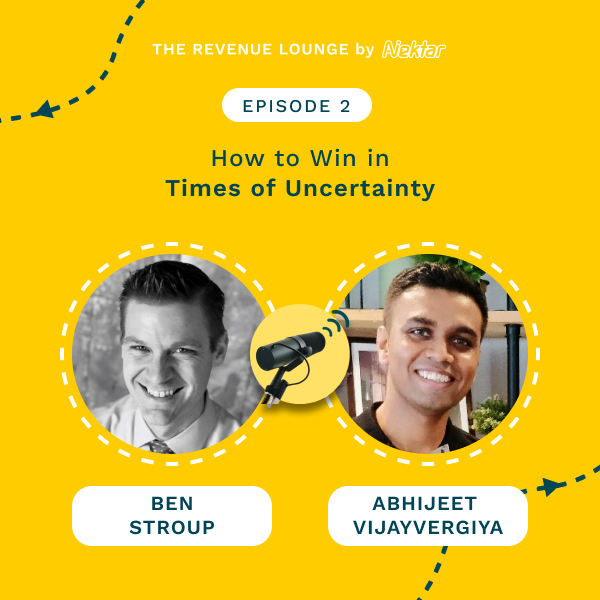
Ep #2: How to Win in Times of Uncertainty
Listen Now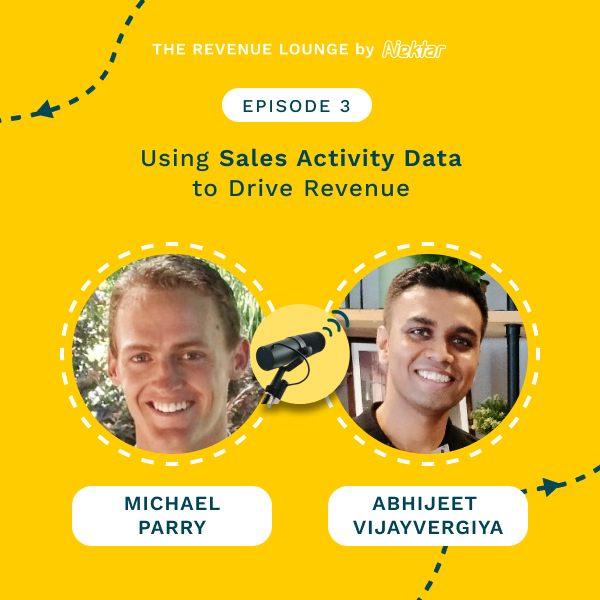
Ep #3: Using Activity Data to Drive Sales Productivity
Listen Now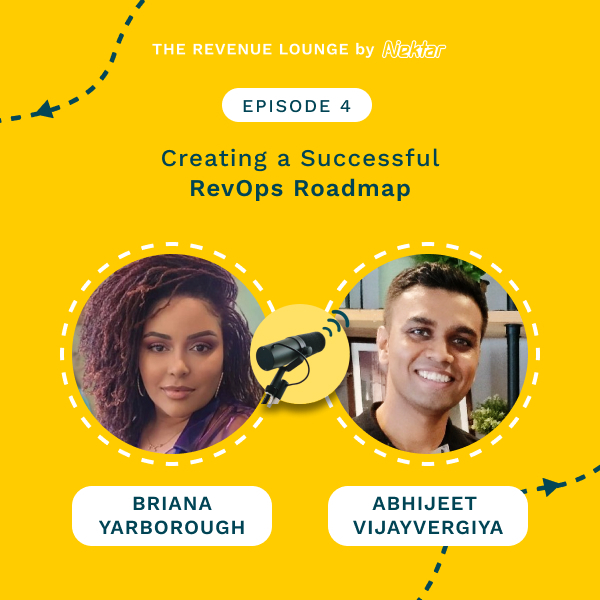
Ep #4: Creating a Successful RevOps Roadmap
Listen Now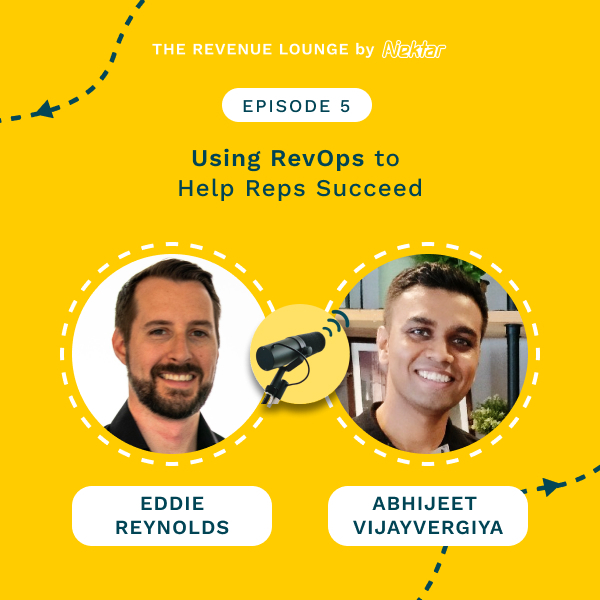
Ep #5: Using RevOps to Help Reps Succeed
Listen Now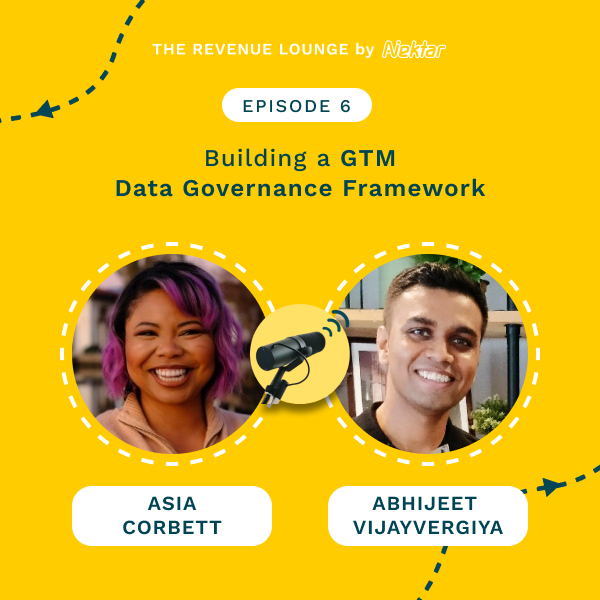
Ep #6: Building a GTM Data Governance Framework
Listen Now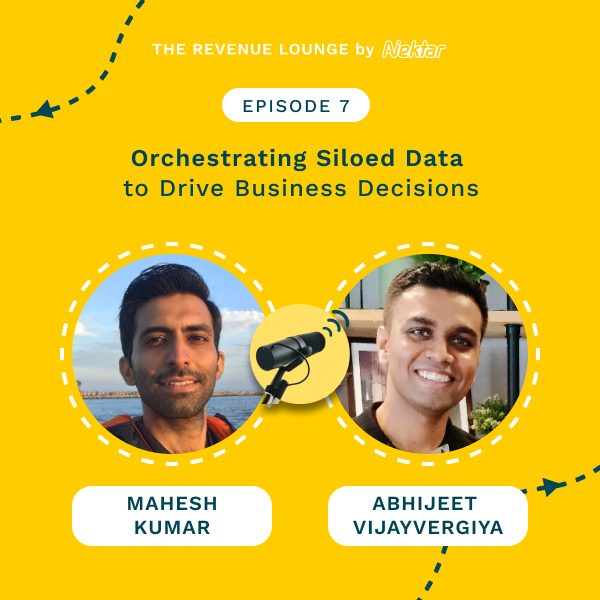
Ep #7: Orchestrating Siloed Data to Drive Business Decisions
Listen Now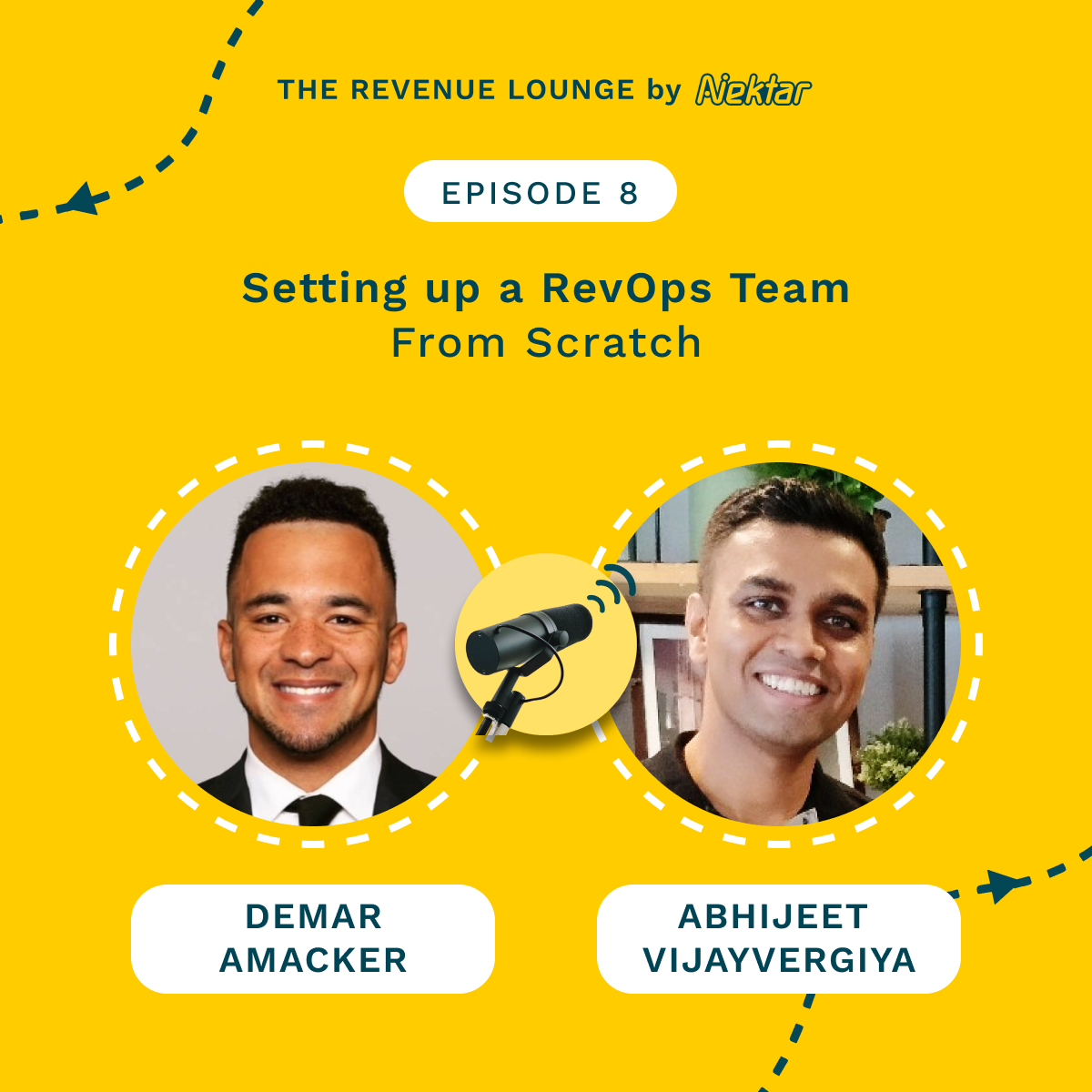
Ep #8: Setting Up a RevOps Team From Scratch
Listen Now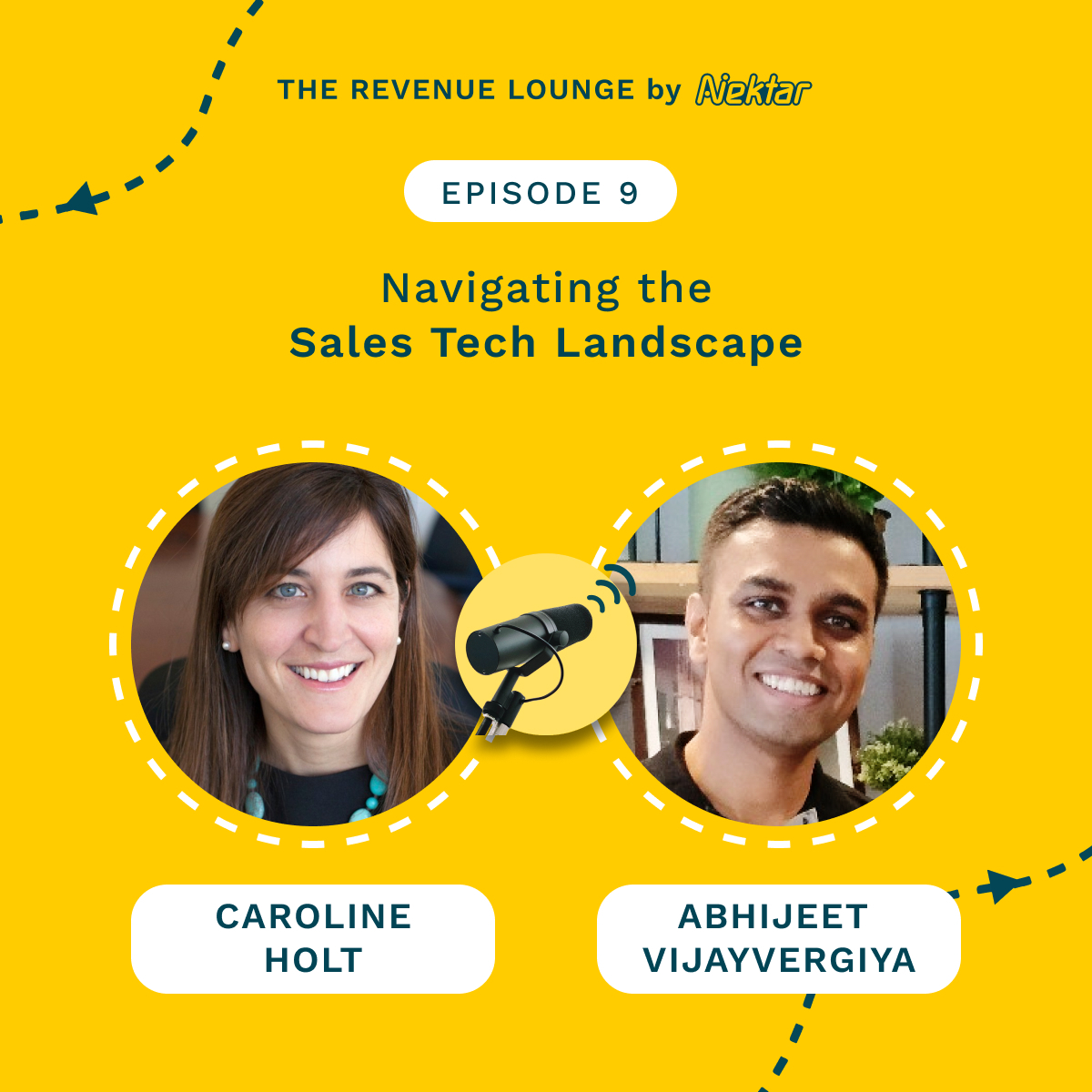
Ep #9: Navigating the Sales Tech Landscape
Listen Now